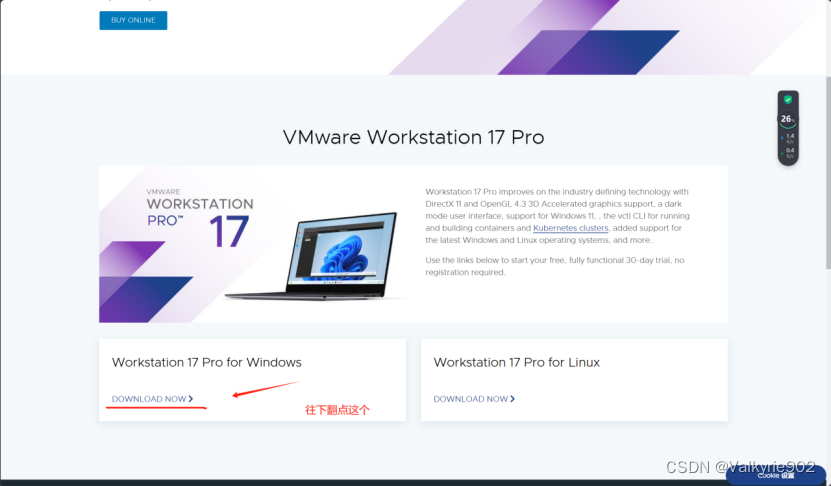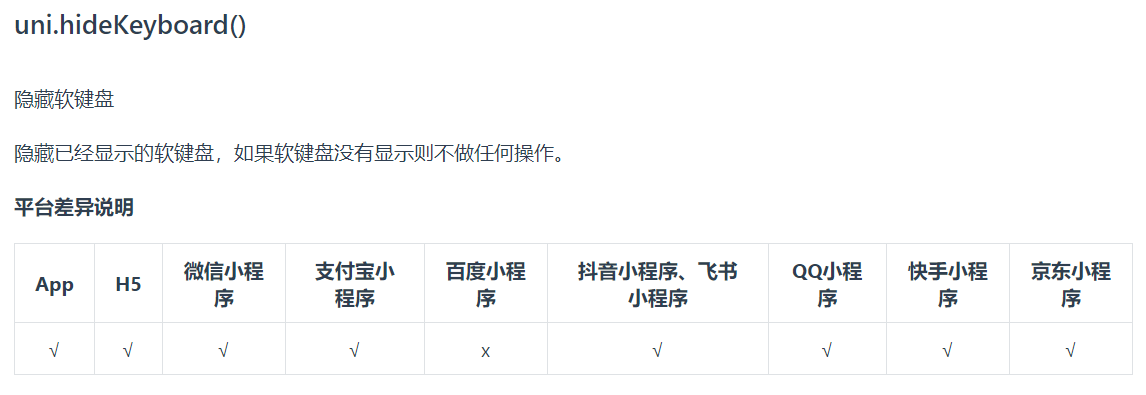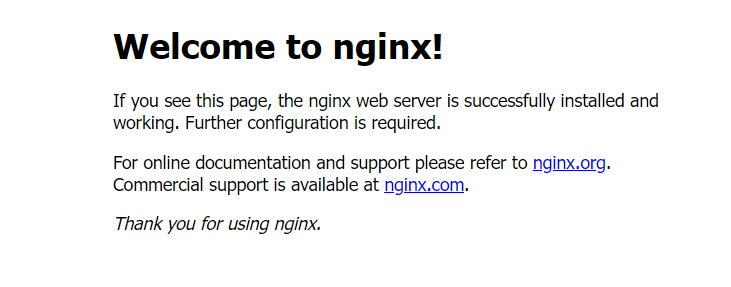目录
一、Python的起源
二、Python的版本更替及变化
三、Python的优缺点
四、Python的发展方向
五、Python之禅
六、推荐专栏/主页:
1、Python函数之旅:Functions
2、Python算法之旅:Algorithms
3、个人主页:https://myelsa1024.blog.csdn.net/



一、Python的起源
Python的起源可以追溯到1989年,当时荷兰计算机科学家Guido van Rossum在阿姆斯特丹的CWI(荷兰计算机科学研究所)工作,他曾参与开发过一门名为ABC的语言,然而这门语言并未能成为主流,因此,Guido van Rossum开始考虑开发一门更好的语言。
在1989年的圣诞节期间,Guido van Rossum秉承着“让编程变得有趣”的原则,开发了一门新的解释型语言,并将其命名为Python。Python的名字来源于Guido van Rossum所喜爱的英国电视剧《Monty Python's Flying Circus》,他希望这门语言能像这部剧一样,让编程变得有趣和愉快。
Python本身是由诸多其他语言发展而来,这包括ABC、Modula-3、C、C++、Algol-68、SmallTalk、Unix shell和其他的脚本语言等等,Python提供了高效的高级数据结构,还能简单有效地面向对象编程,Python语法和动态类型,以及解释型语言的本质,使它成为多数平台上写脚本和快速开发应用的编程语言。
随着版本的不断更新和语言新功能的添加,Python逐渐被用于独立的、大型项目的开发;Python解释器易于扩展,可以使用C、C++或其他可以通过C调用的语言扩展新的功能和数据类型;Python也可用于可定制化软件中的扩展程序语言;Python丰富的标准库,提供了适用于各个主要系统平台的源码或机器码。
如今,Python已经成为最受欢迎的程序设计语言之一,并在各个领域得到了广泛的应用。
二、Python的版本更替及变化
Python的版本更替历史可以追溯到1991年,当时Guido van Rossum发布了Python的第一个版本。自此以后,Python经历了多个版本的更新和迭代,逐渐发展成为一种流行且广泛使用的编程语言。
Python的主要版本更迭及变化如下:
| Python版本 | 更新日期 | 对应版本文档链接 |
| Python 3.12.3 | 2024/04/09 | 3.12.3 Documentation |
| Python 3.12.2 | 2024/02/06 | 3.12.2 Documentation |
| Python 3.12.1 | 2023/12/08 | 3.12.1 Documentation |
| Python 3.12.0 | 2023/10/02 | 3.12.0 Documentation |
| Python 3.11.9 | 2024/04/02 | 3.11.9 Documentation |
| Python 3.11.8 | 2024/02/06 | 3.11.8 Documentation |
| Python 3.11.7 | 2023/12/04 | 3.11.7 Documentation |
| Python 3.11.6 | 2023/10/02 | 3.11.6 Documentation |
| Python 3.11.5 | 2023/08/24 | https://docs.python.org/release/3.11.5/ |
| Python 3.11.4 | 2023/06/06 | 3.11.4 Documentation |
| Python 3.11.3 | 2023/04/05 | 3.11.3 Documentation |
| Python 3.11.2 | 2023/02/08 | 3.11.2 Documentation |
| Python 3.11.1 | 2022/12/06 | 3.11.1 Documentation |
| Python 3.11.0 | 2022/10/24 | 3.11.0 Documentation |
| Python 3.10.14 | 2024/03/19 | 3.10.14 Documentation |
| Python 3.10.13 | 2023/08/24 | 3.10.13 Documentation |
| Python 3.10.12 | 2023/06/06 | 3.10.12 Documentation |
| Python 3.10.11 | 2023/04/05 | 3.10.11 Documentation |
| Python 3.10.10 | 2023/02/08 | https://docs.python.org/release/3.10.10/ |
| Python 3.10.9 | 2022/12/06 | 3.10.9 Documentation |
| Python 3.10.8 | 2022/10/08 | 3.10.8 Documentation |
| Python 3.10.7 | 2022/09/06 | 3.10.7 Documentation |
| Python 3.10.6 | 2022/08/08 | https://docs.python.org/release/3.10.6/ |
| Python 3.10.5 | 2022/06/06 | 3.10.5 Documentation |
| Python 3.10.4 | 2022/03/24 | 3.10.4 Documentation |
| Python 3.10.3 | 2022/03/16 | 3.10.3 Documentation |
| Python 3.10.2 | 2022/01/14 | 3.10.2 Documentation |
| Python 3.10.1 | 2021/12/06 | 3.10.1 Documentation |
| Python 3.10.0 | 2021/10/04 | 3.10.0 Documentation |
| Python 3.9.19 | 2024/03/19 | 3.9.19 Documentation |
| Python 3.9.18 | 2023/08/24 | 3.9.18 Documentation |
| Python 3.9.17 | 2023/06/06 | 3.9.17 Documentation |
| Python 3.9.16 | 2022/12/06 | 3.9.16 Documentation |
| Python 3.9.15 | 2022/10/11 | 3.9.15 Documentation |
| Python 3.9.14 | 2022/09/06 | 3.9.14 Documentation |
| Python 3.9.13 | 2022/05/17 | 3.9.13 Documentation |
| Python 3.9.12 | 2022/03/24 | 3.9.12 Documentation |
| Python 3.9.11 | 2022/03/16 | 3.9.11 Documentation |
| Python 3.9.10 | 2022/01/14 | 3.9.10 Documentation |
| Python 3.9.9 | 2021/11/15 | 3.9.9 Documentation |
| Python 3.9.8 | 2021/11/05 | 3.9.8 Documentation |
| Python 3.9.7 | 2021/08/30 | 3.9.7 Documentation |
| Python 3.9.6 | 2021/06/28 | 3.9.6 Documentation |
| Python 3.9.5 | 2021/05/03 | https://docs.python.org/release/3.9.5/ |
| Python 3.9.4 | 2021/04/04 | 3.9.4 Documentation |
| Python 3.9.3 | 2021/04/02 | 3.9.3 Documentation |
| Python 3.9.2 | 2021/02/19 | 3.9.2 Documentation |
| Python 3.9.1 | 2020/12/08 | 3.9.1 Documentation |
| Python 3.9.0 | 2020/10/05 | 3.9.0 Documentation |
| Python 3.8.19 | 2024/03/19 | https://docs.python.org/release/3.8.19/ |
| Python 3.8.18 | 2023/08/24 | 3.8.18 Documentation |
| Python 3.8.17 | 2023/06/06 | 3.8.17 Documentation |
| Python 3.8.16 | 2022/12/06 | https://docs.python.org/release/3.8.16/ |
| Python 3.8.15 | 2022/10/11 | 3.8.15 Documentation |
| Python 3.8.14 | 2022/09/06 | 3.8.14 Documentation |
| Python 3.8.13 | 2022/03/16 | 3.8.13 Documentation |
| Python 3.8.12 | 2021/08/30 | 3.8.12 Documentation |
| Python 3.8.11 | 2021/06/28 | 3.8.11 Documentation |
| Python 3.8.10 | 2021/05/03 | 3.8.10 Documentation |
| Python 3.8.9 | 2021/04/02 | 3.8.9 Documentation |
| Python 3.8.8 | 2021/02/19 | 3.8.8 Documentation |
| Python 3.8.7 | 2020/12/21 | 3.8.7 Documentation |
| Python 3.8.6 | 2020/09/23 | 3.8.6 Documentation |
| Python 3.8.5 | 2020/07/20 | 3.8.5 Documentation |
| Python 3.8.4 | 2020/07/13 | 3.8.4 Documentation |
| Python 3.8.3 | 2020/05/13 | 3.8.3 Documentation |
| Python 3.8.2 | 2020/02/24 | 3.8.2 Documentation |
| Python 3.8.1 | 2019/12/18 | 3.8.1 Documentation |
| Python 3.8.0 | 2019/10/14 | 3.8.0 Documentation |
| Python 3.7.17 | 2023/06/06 | 3.7.17 Documentation |
| Python 3.7.16 | 2022/12/06 | 3.7.16 Documentation |
| Python 3.7.15 | 2022/10/11 | 3.7.15 Documentation |
| Python 3.7.14 | 2022/09/06 | 3.7.14 Documentation |
| Python 3.7.13 | 2022/03/16 | 3.7.13 Documentation |
| Python 3.7.12 | 2021/09/04 | 3.7.12 Documentation |
| Python 3.7.11 | 2021/06/28 | 3.7.11 Documentation |
| Python 3.7.10 | 2021/02/15 | 3.7.10 Documentation |
| Python 3.7.9 | 2020/08/17 | 3.7.9 Documentation |
| Python 3.7.8 | 2020/06/27 | 3.7.8 Documentation |
| Python 3.7.7 | 2020/03/10 | 3.7.7 Documentation |
| Python 3.7.6 | 2019/12/18 | 3.7.6 Documentation |
| Python 3.7.5 | 2019/10/15 | 3.7.5 Documentation |
| Python 3.7.4 | 2019/07/08 | 3.7.4 Documentation |
| Python 3.7.3 | 2019/03/25 | 3.7.3 Documentation |
| Python 3.7.2 | 2018/12/24 | 3.7.2 Documentation |
| Python 3.7.1 | 2018/10/20 | 3.7.1 Documentation |
| Python 3.7.0 | 2018/06/27 | 3.7.0 Documentation |
| Python 3.6.15 | 2021/09/04 | 3.6.15 Documentation |
| Python 3.6.14 | 2021/06/28 | 3.6.14 Documentation |
| Python 3.6.13 | 2021/02/15 | 3.6.13 Documentation |
| Python 3.6.12 | 2020/08/17 | 3.6.12 Documentation |
| Python 3.6.11 | 2020/06/27 | 3.6.11 Documentation |
| Python 3.6.10 | 2019/12/18 | 3.6.10 Documentation |
| Python 3.6.9 | 2019/07/02 | 3.6.9 Documentation |
| Python 3.6.8 | 2018/12/24 | 3.6.8 Documentation |
| Python 3.6.7 | 2018/10/20 | 3.6.7 Documentation |
| Python 3.6.6 | 2018/06/27 | 3.6.6 Documentation |
| Python 3.6.5 | 2018/03/28 | 3.6.5 Documentation |
| Python 3.6.4 | 2017/12/19 | 3.6.4 Documentation |
| Python 3.6.3 | 2017/10/03 | 3.6.3 Documentation |
| Python 3.6.2 | 2017/07/17 | 3.6.2 Documentation |
| Python 3.6.1 | 2017/03/21 | 3.6.1 Documentation |
| Python 3.6.0 | 2016/12/23 | Overview — Python 3.6.0 documentation |
| Python 3.5.10 | 2020/09/05 | 3.5.9 Documentation |
| Python 3.5.8 | 2019/11/01 | 3.5.8 Documentation |
| Python 3.5.7 | 2019/03/18 | 3.5.7 Documentation |
| Python 3.5.6 | 2018/08/08 | 3.5.6 Documentation |
| Python 3.5.5 | 2018/02/04 | 3.5.5 Documentation |
| Python 3.5.4 | 2017/07/25 | 3.5.4 Documentation |
| Python 3.5.3 | 2017/01/17 | 3.5.3 Documentation |
| Python 3.5.2 | 2016/06/27 | Overview — Python 3.5.2 documentation |
| Python 3.5.1 | 2015/12/07 | Overview — Python 3.5.1 documentation |
| Python 3.5.0 | 2015/09/13 | Overview — Python 3.5.0 documentation |
| Python 3.4.10 | 2019/03/18 | Overview — Python 3.4.10 documentation |
| Python 3.4.9 | 2018/08/08 | Overview — Python 3.4.9 documentation |
| Python 3.4.8 | 2018/02/04 | Overview — Python 3.4.8 documentation |
| Python 3.4.7 | 2017/07/25 | Overview — Python 3.4.7 documentation |
| Python 3.4.6 | 2017/01/17 | https://docs.python.org/release/3.4.6/ |
| Python 3.4.5 | 2016/06/26 | Overview — Python 3.4.5 documentation |
| Python 3.4.4 | 2015/12/06 | Overview — Python 3.4.4 documentation |
| Python 3.4.3 | 2015/02/25 | Overview — Python 3.4.3 documentation |
| Python 3.4.2 | 2014/10/04 | https://docs.python.org/release/3.4.2/ |
| Python 3.4.1 | 2014/05/18 | Overview — Python 3.4.1 documentation |
| Python 3.4.0 | 2014/03/16 | Overview — Python 3.4.0 documentation |
| Python 3.3.7 | 2017/09/19 | Overview — Python 3.3.7 documentation |
| Python 3.3.6 | 2014/10/12 | Overview — Python 3.3.6 documentation |
| Python 3.3.5 | 2014/03/09 | Overview — Python 3.3.5 documentation |
| Python 3.3.4 | 2014/02/09 | https://docs.python.org/release/3.3.4/ |
| Python 3.3.3 | 2013/11/17 | Overview — Python v3.3.3 documentation |
| Python 3.3.2 | 2013/05/15 | Overview — Python v3.3.2 documentation |
| Python 3.3.1 | 2013/04/07 | Overview — Python v3.3.1 documentation |
| Python 3.3.0 | 2012/09/29 | https://docs.python.org/release/3.3.0/ |
| Python 3.2.6 | 2014/10/11 | Overview — Python v3.2.6 documentation |
| Python 3.2.5 | 2013/05/15 | Overview — Python v3.2.5 documentation |
| Python 3.2.4 | 2013/04/07 | Overview — Python v3.2.4 documentation |
| Python 3.2.3 | 2012/04/10 | Overview — Python v3.2.3 documentation |
| Python 3.2.2 | 2011/09/04 | Overview — Python v3.2.2 documentation |
| Python 3.2.1 | 2011/07/10 | Overview — Python v3.2.1 documentation |
| Python 3.2 | 2011/02/20 | Overview — Python v3.2 documentation |
| Python 3.1.5 | 2012/04/09 | Overview — Python v3.1.5 documentation |
| Python 3.1.4 | 2011/06/11 | Overview — Python v3.1.4 documentation |
| Python 3.1.3 | 2010/11/27 | Overview — Python v3.1.3 documentation |
| Python 3.1.2 | 2010/03/21 | Overview — Python v3.1.2 documentation |
| Python 3.1.1 | 2009/08/17 | Overview — Python v3.1.1 documentation |
| Python 3.1 | 2009/06/27 | Overview — Python v3.1 documentation |
| Python 3.0.1 | 2009/02/13 | Overview — Python v3.0.1 documentation |
| Python 3.0 | 2008/12/03 | https://docs.python.org/release/3/ |
| Python 2.7.18 | 2020/04/20 | Python 2.7.18 documentation |
| Python 2.7.17 | 2019/10/19 | https://docs.python.org/release/2.7.17/ |
| Python 2.7.16 | 2019/03/02 | Python 2.7.16 documentation |
| Python 2.7.15 | 2018/04/30 | Python 2.7.15 documentation |
| Python 2.7.14 | 2017/09/16 | https://docs.python.org/release/2.7.14/ |
| Python 2.7.13 | 2016/12/17 | https://docs.python.org/release/2.7.13/ |
| Python 2.7.12 | 2016/06/26 | Overview — Python 2.7.12 documentation |
| Python 2.7.11 | 2015/12/05 | Overview — Python 2.7.11 documentation |
| Python 2.7.10 | 2015/05/23 | Overview — Python 2.7.10 documentation |
| Python 2.7.9 | 2014/12/10 | Overview — Python 2.7.9 documentation |
| Python 2.7.8 | 2014/07/01 | Overview — Python v2.7.8 documentation |
| Python 2.7.7 | 2014/05/31 | Overview — Python v2.7.7 documentation |
| Python 2.7.6 | 2013/11/10 | Overview — Python v2.7.6 documentation |
| Python 2.7.5 | 2013/05/15 | Overview — Python v2.7.5 documentation |
| Python 2.7.4 | 2013/04/06 | Overview — Python v2.7.4 documentation |
| Python 2.7.3 | 2012/04/09 | Overview — Python v2.7.3 documentation |
| Python 2.7.2 | 2011/06/11 | Overview — Python v2.7.2 documentation |
| Python 2.7.1 | 2010/11/27 | Overview — Python v2.7.1 documentation |
| Python 2.7 | 2010/07/04 | Overview — Python v2.7 documentation |
| Python 2.6.9 | 2013/10/29 | Overview — Python v2.6.9 documentation |
| Python 2.6.8 | 2012/04/10 | Overview — Python v2.6.8 documentation |
| Python 2.6.7 | 2011/06/03 | Overview — Python v2.6.7 documentation |
| Python 2.6.6 | 2010/08/24 | Overview — Python v2.6.6 documentation |
| Python 2.6.5 | 2010/03/19 | Overview — Python v2.6.5 documentation |
| Python 2.6.4 | 2009/10/25 | Overview — Python v2.6.4 documentation |
| Python 2.6.3 | 2009/10/02 | Overview — Python v2.6.3 documentation |
| Python 2.6.2 | 2009/04/14 | Overview — Python v2.6.2 documentation |
| Python 2.6.1 | 2008/12/04 | Overview — Python v2.6.1 documentation |
| Python 2.6 | 2008/10/01 | Overview — Python v2.6 documentation |
| Python 2.5.4 | 2008/12/23 | Python 2.5.4 Documentation - 23rd December, 2008 |
| Python 2.5.3 | 2008/12/19 | Python 2.5.3 Documentation - 19th December, 2008 |
| Python 2.5.2 | 2008/02/21 | Python 2.5.2 Documentation - 21st February, 2008 |
| Python 2.5.1 | 2007/04/18 | Python 2.5.1 Documentation - 18th April, 2007 |
| Python 2.5 | 2006/09/19 | Python 2.5 Documentation - 19th September, 2006 |
| Python 2.4.4 | 2006/10/18 | Python 2.4.4 Documentation - 18 October 2006 |
| Python 2.4.3 | 2006/03/29 | Python 2.4.3 Documentation - 29 March 2006 |
| Python 2.4.2 | 2005/09/28 | Python 2.4.2 Documentation - 28 September 2005 |
| Python 2.4.1 | 2005/03/30 | Python 2.4.1 Documentation - 30 March 2005 |
| Python 2.4 | 2004/11/30 | Python 2.4 Documentation - November 30, 2004 |
| Python 2.3.5 | 2005/02/08 | Python 2.3.5 Documentation - February 08, 2005 |
| Python 2.3.4 | 2004/05/27 | Python 2.3.4 Documentation - May 20, 2004 |
| Python 2.3.3 | 2003/12/19 | Python 2.3.3 Documentation - December 19, 2003 |
| Python 2.3.2 | 2003/10/03 | Python 2.3.2 Documentation - October 3, 2003 |
| Python 2.3.1 | 2003/09/23 | Python 2.3.1 Documentation - September 23, 2003 |
| Python 2.3 | 2003/07/29 | Python 2.3 Documentation - July 29, 2003 |
| Python 2.2.3 | 2003/05/30 | Python 2.2.3 Documentation - 30 May 2003 |
| Python 2.2.2 | 2002/10/14 | Python 2.2.2 Documentation - October 14, 2002 |
| Python 2.2.1 | 2002/04/10 | Python 2.2.1 Documentation - April 10, 2002 |
| Python 2.2p1 | 2002/03/29 | Python 2.2p1 Documentation - March 29, 2002 |
| Python 2.2 | 2001/12/21 | https://docs.python.org/release/2.2/ |
| Python 2.1.3 | 2002/04/08 | Python 2.1.3 Documentation - April 8, 2002 |
| Python 2.1.2 | 2002/01/16 | Python 2.1.2 Documentation - January 16, 2002 |
| Python 2.1.1 | 2001/07/20 | Python 2.1.1 Documentation - July 20, 2001 |
| Python 2.1 | 2001/04/15 | Python 2.1 Documentation - April 15, 2001 |
| Python 2.0.1 | 2001/06/22 | Python 2.0.1 Documentation - June 22, 2001 |
| Python 2.0 | 2000/10/16 | https://docs.python.org/release/2/ |
| Python 1.6 | 2000/09/05 | Python 1.6 Documentation - September 18, 2000 |
| Python 1.5.2p2 | 2000/03/22 | Python 1.5.2 Documentation - March 22, 2000 |
| Python 1.5.2p1 | 1999/07/06 | Python 1.5.2 Documentation |
| Python 1.5.2 | 1999/04/30 | Python 1.5.2 Documentation |
| Python 1.5.1p1 | 1998/08/06 | Python 1.5 Documentation |
| Python 1.5.1 | 1998/04/14 | https://docs.python.org/release/1.5.1/ |
| Python 1.5 | 1998/02/17 | Python 1.5 Documentation |
| Python 1.4 | 1996/10/25 | Index of /release/1.4/ |
三、Python的优缺点
Python作为一种广泛使用的编程语言,具有其独特的优点和缺点,其主要优缺点有:
1、优点:
1-1、易读性和简洁性:Python的语法清晰简洁,易于阅读和理解,这使得Python成为初学者的理想选择,同时也降低了维护代码的成本。
1-2、强大的库支持:Python拥有大量的第三方库,如NumPy、Pandas、Matplotlib等,这些库为数据分析、科学计算、机器学习等领域提供了强大的支持。
1-3、跨平台兼容性:Python可以在多种操作系统上运行,如Windows、Linux、Mac OS等,这使得Python具有很好的跨平台兼容性。
1-4、面向对象编程:Python支持面向对象编程,这使得代码更加模块化、易于维护和扩展。
1-5、社区支持:Python拥有一个庞大的开发者社区,这为Python的发展提供了强大的支持,开发者可以在社区中分享经验、学习新知识、解决问题。
1-6、解释型语言:Python是解释型语言,无需编译即可运行,这大大加快了开发速度,同时,Python也支持交互式编程,使得调试和测试变得更加容易。
1-7、可扩展性:Python可以与C、C++等语言进行混合编程,这使得Python在保持易读性和简洁性的同时,也能获得更好的性能。
2、缺点:
2-1、性能问题:与C、C++等编译型语言相比,Python的性能通常较差,这是因为Python是解释型语言,需要在运行时将源代码解释成机器码,然而,在大多数情况下,这并不会成为问题,因为Python的性能足以应对大多数应用场景。
2-2、全局解释器锁(GIL):Python的全局解释器锁限制了Python的多线程性能,这意味着在Python中,多线程并不能充分利用多核CPU的优势,然而,这个问题可以通过使用多进程、异步编程等方式来缓解。
2-3、代码的可读性双刃剑:虽然Python的易读性是其优点之一,但这也可能导致代码过于冗长,在一些需要高度优化的场景中,Python的代码可能会比其他语言更冗长。
2-4、类型系统:Python是一种动态类型语言,这意味着在运行时才会检查变量的类型,这可能会导致一些类型错误在运行时才发现,增加了调试的难度,然而,Python 3引入了类型注解,这有助于在一定程度上缓解这个问题。
2-5、内存管理:Python的内存管理是由解释器自动进行的,这在一定程度上降低了内存泄漏的风险,但是,这也可能导致一些不必要的内存占用,在一些对内存要求严格的场景中,可能需要更精细的内存管理策略。
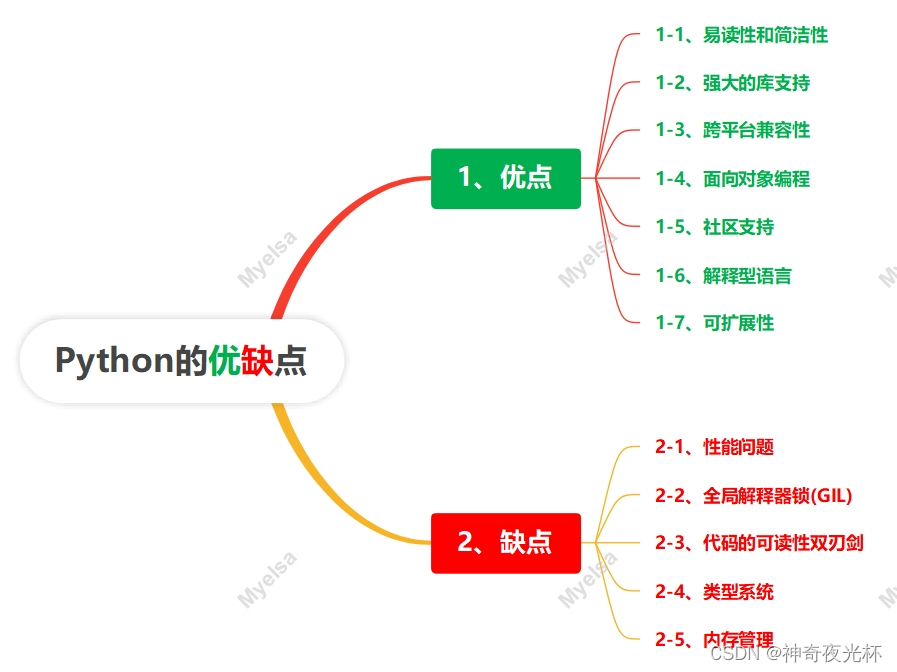
四、Python的发展方向
Python的发展方向是多元化的,随着技术的不断发展和应用领域的扩大,其应用领域和岗位需求也在不断增加,其主要发展方向有:
1、Web开发:Python在Web开发领域有着广泛的应用,如Django和Flask等Web框架的流行,使得Python成为Web开发的重要工具,Python的简洁语法和强大的功能,使得开发者能够快速地构建出高效、稳定的Web应用。
2、网络编程:Python在网络编程领域也有着广泛的应用,它支持多种网络通信协议,并且拥有丰富的网络编程库,如socket、twisted等,这使得Python能够轻松地处理各种网络通信问题。
3、数据分析与大数据处理:Python在数据分析和大数据处理方面表现出色,拥有如NumPy、Pandas、Matplotlib等强大的数据分析库和工具,Python的语法简单明了,易于学习和使用,这使得它成为数据分析和大数据处理领域的热门选择。
4、自动化与脚本编写:Python的语法简单明了,易于学习,因此它成为编写脚本和自动化任务的首选语言,Python可以编写各种自动化脚本,如批量处理文件、自动化测试、自动化运维等。
5、人工智能与机器学习:Python是人工智能和机器学习领域的热门语言,拥有如TensorFlow、PyTorch等强大的机器学习库和工具,Python的易用性和丰富的库资源使得它成为研究和开发人工智能和机器学习算法的首选语言。
6、科学计算与可视化:Python在科学计算和可视化方面也有很强的能力,例如,其科学计算库NumPy、SciPy和matplotlib等,使得Python在科研领域具有广泛的应用。
7、嵌入式系统开发:虽然Python通常不是嵌入式系统开发的首选语言,但随着Python微控制器的出现和物联网技术的发展,Python在嵌入式系统开发领域的应用也逐渐增多。
8、爬虫开发:在爬虫领域,Python几乎是霸主地位,Python拥有丰富的网络爬虫库(如Scrapy、BeautifulSoup等),能够轻松地爬取网络上的各种数据。
9、物联网(IoT):随着物联网技术的不断发展,Python在物联网领域的应用也越来越广泛,Python可以轻松地与各种硬件设备进行交互,实现数据的采集、处理和传输。
10、游戏开发:虽然Python不是专门的游戏开发语言,但它也可以用于游戏开发,Pygame等库使得Python能够开发出一些简单的2D游戏,并且Python的简洁语法和强大的功能也使得它成为游戏开发者的一个选择。
总之,Python的发展方向非常广泛,几乎涵盖了编程领域的各个方面,随着技术的不断发展,Python的应用领域还将继续扩大。
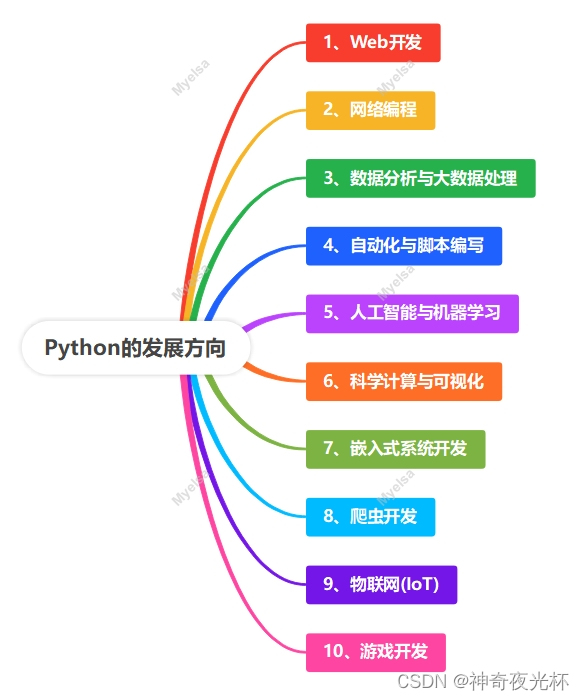
五、Python之禅
在Python终端会话中执行命令import this时,让我们一起领略Python之禅(注:为了与中文翻译对应,我添加了序号,实际输出是无序号的):
import this
# The Zen of Python, by Tim Peters
#
# 01、Beautiful is better than ugly.
# 02、Explicit is better than implicit.
# 03、Simple is better than complex.
# 04、Complex is better than complicated.
# 05、Flat is better than nested.
# 06、Sparse is better than dense.
# 07、Readability counts.
# 08、Special cases aren't special enough to break the rules.
# 09、Although practicality beats purity.
# 10、Errors should never pass silently.
# 11、Unless explicitly silenced.
# 12、In the face of ambiguity, refuse the temptation to guess.
# 13、There should be one-- and preferably only one --obvious way to do it.
# 14、Although that way may not be obvious at first unless you're Dutch.
# 15、Now is better than never.
# 16、Although never is often better than *right* now.
# 17、If the implementation is hard to explain, it's a bad idea.
# 18、If the implementation is easy to explain, it may be a good idea.
# 19、Namespaces are one honking great idea -- let's do more of those!译文如下:
《Python之禅》,作者:Tim Peters01、优美优于丑陋
02、明了优于隐晦
03、简单优于复杂
04、复杂优于凌乱
05、扁平优于嵌套
06、稀疏胜于密集
07、可读性很重要
08、特例亦不可违背原则
09、即使实用比纯粹更优
10、错误绝不能悄悄忽略
11、除非它明确需要如此
12、面对不确定性,拒绝妄加猜测
13、任何问题应有一种,且最好只有一种,显而易见的解决方法
14、尽管这方法一开始并非如此直观,除非你是荷兰人
15、做优于不做
16、然而不假思索还不如不做
17、很难解释的,必然是坏方法
18、很好解释的,可能是好方法
19、命名空间是个绝妙的主意,我们应好好利用它

